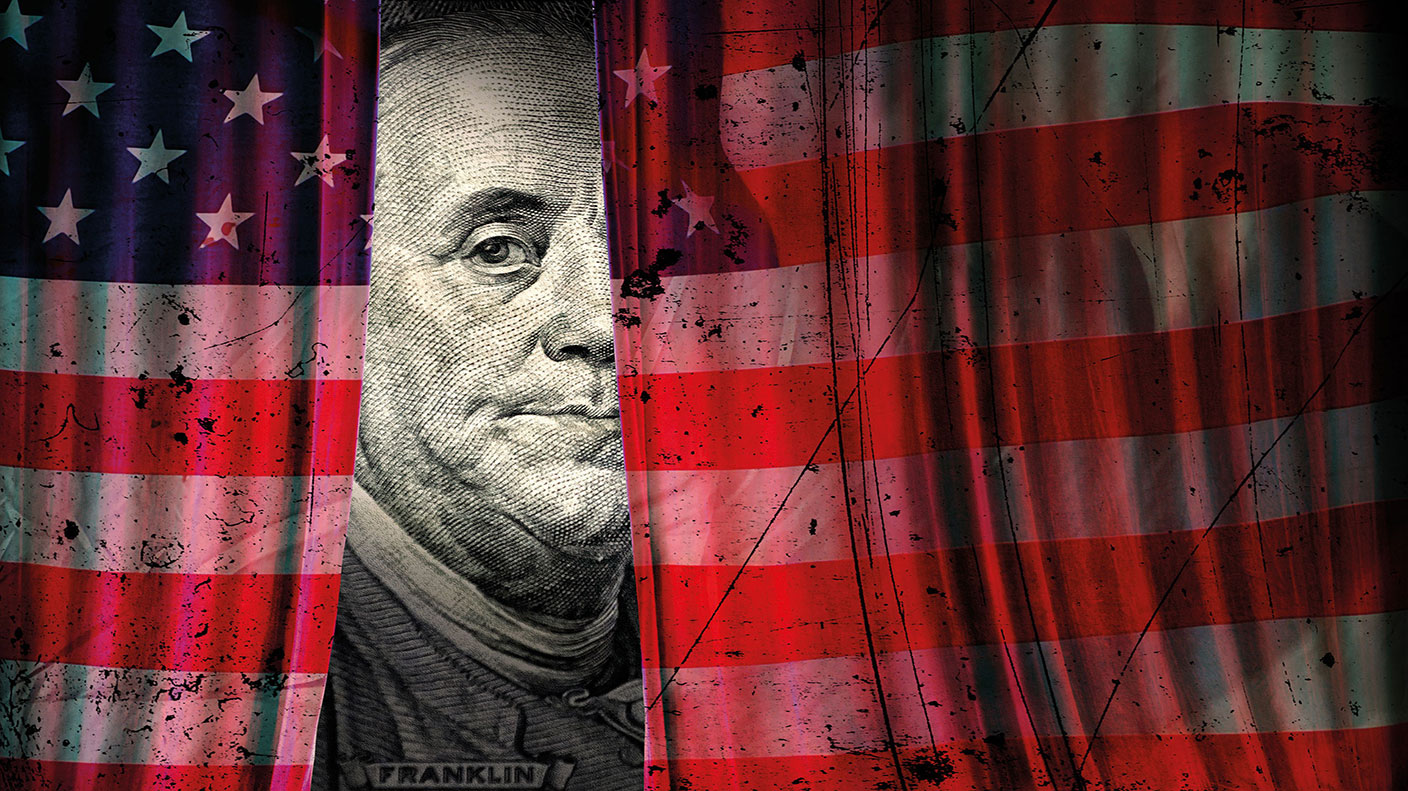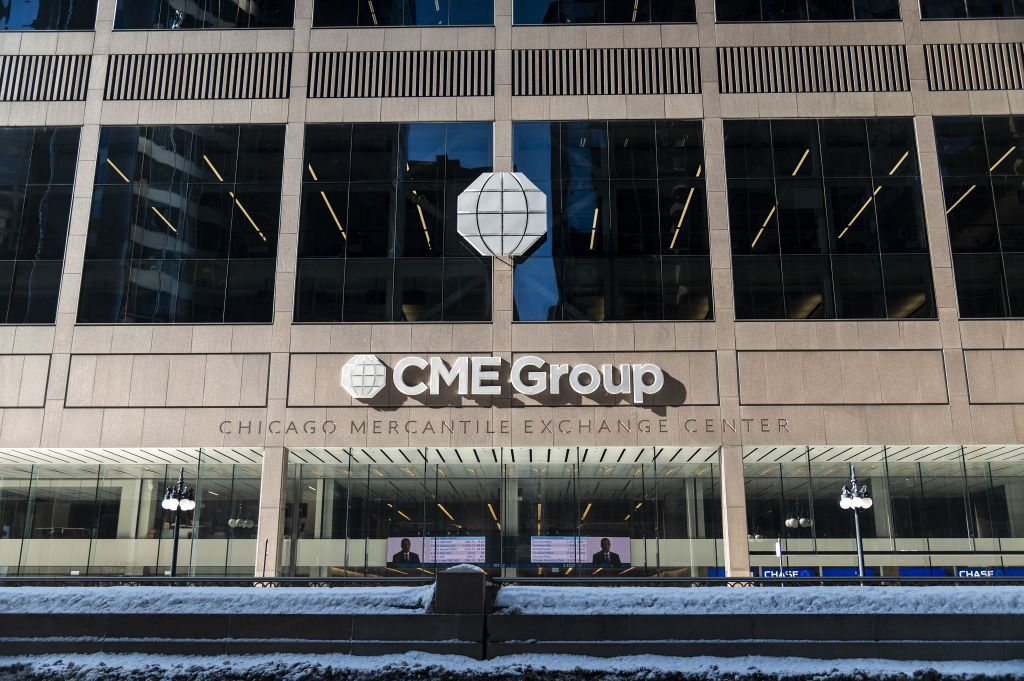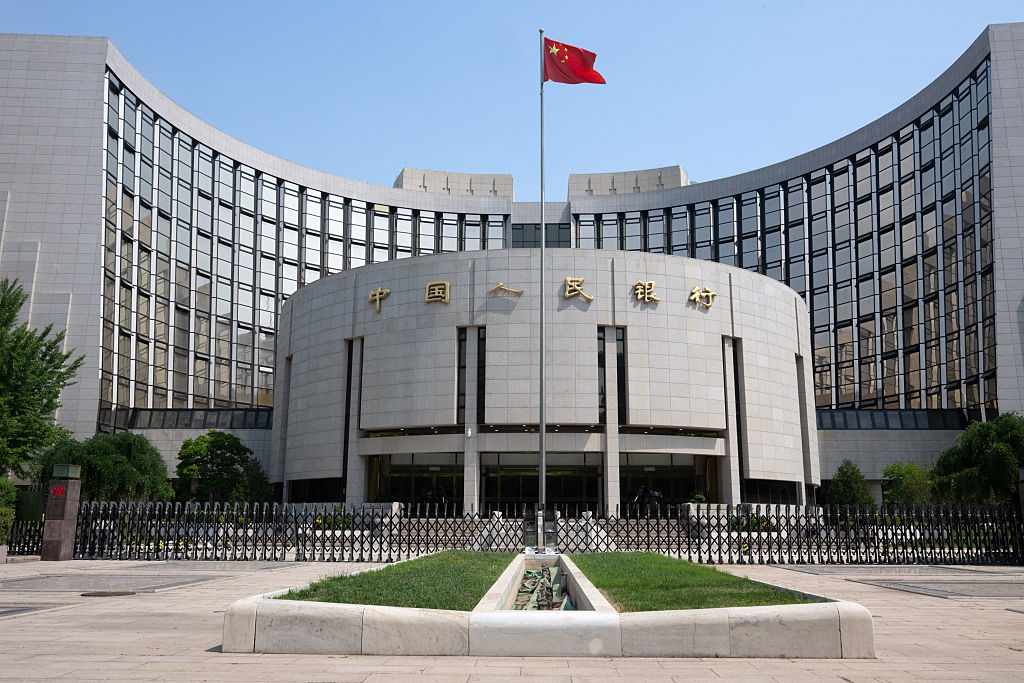Why the value of the US dollar is falling
The US dollar has hit a two-year low. Alex Rankine explains what's going on.

Get the latest financial news, insights and expert analysis from our award-winning MoneyWeek team, to help you understand what really matters when it comes to your finances.
You are now subscribed
Your newsletter sign-up was successful
Want to add more newsletters?

Twice daily
MoneyWeek
Get the latest financial news, insights and expert analysis from our award-winning MoneyWeek team, to help you understand what really matters when it comes to your finances.

Four times a week
Look After My Bills
Sign up to our free money-saving newsletter, filled with the latest news and expert advice to help you find the best tips and deals for managing your bills. Start saving today!
The US dollar has hit a two-year low as markets move firmly into “risk-on” mode. The US dollar index, which measures the greenback’s value against a basket of six major trading partners’ currencies, spiked during the March crisis as investors rushed into the traditional safe-haven of dollar assets. Yet massive central bank support and the prospect of a vaccine has since reversed the trend; the index has tumbled by 11% since 20 March. For the year to date the currency is down by more than 4% and this week hit its lowest level since April 2018. A pound currently buys about $1.33.
Despite the recent dip, it is the dollar’s prolonged strength that has been “one of the more monotonous motifs” of the last few years, says Buttonwood in The Economist. Analysts have repeatedly predicted an imminent reversal, only for the greenback to stay high and mighty. A persistently weaker dollar would be good news for emerging markets, where many debts are denominated in the currency. That would make servicing those loans cheaper in local currency terms, fuelling a “catch-up” rally in local shares.
Vaccines changed the trend
The dollar’s modest pullback is easy to explain, say Eva Szalay and Colby Smith in the Financial Times. “A vaccine changes everything.” Vaccines will hasten a general economic rebound, encouraging investors to move cash out of their US comfort zone and into other world markets. On average, traders predict the dollar will end 2021 down 3% from its current level, but some go much further. Calvin Tse of Citi thinks the currency could slip by 20% next year. Moves on that scale are exceedingly rare in currency markets.
MoneyWeek
Subscribe to MoneyWeek today and get your first six magazine issues absolutely FREE

Sign up to Money Morning
Don't miss the latest investment and personal finances news, market analysis, plus money-saving tips with our free twice-daily newsletter
Don't miss the latest investment and personal finances news, market analysis, plus money-saving tips with our free twice-daily newsletter
For all the chaos of 2020, forex markets have remained “eerily calm” writes Kenneth Rogoff on Project Syndicate. This year’s movements are nothing compared to the “wild gyrations” that followed 2008. That may be because the pandemic has struck everywhere, prompting governments and central banks to adopt broadly similar policies – turning on the fiscal taps and putting interest rates in a “cryogenic freeze” near zero. Yet the present trend, which pairs an “ever-rising share of US debt in world markets” with an “ever-falling” US share of world GDP cannot last forever. We are in the “calm before the exchange-rate storm”. There is another reason to think the dollar is heading down in the longer term, says Buttonwood. For much of the 2010s the currency has benefited from an interest-rate differential, but that is no longer the case.
Pre-crisis, US interest rates ran at about 1.75%, a far more attractive yield for investors than the zero or negative interest rates available in most other developed markets. Yet America this year joined its peers in near-zero land: today the Fed Funds rate sits at 0-0.25%. Look out below.
Get the latest financial news, insights and expert analysis from our award-winning MoneyWeek team, to help you understand what really matters when it comes to your finances.
Alex is an investment writer who has been contributing to MoneyWeek since 2015. He has been the magazine’s markets editor since 2019.
Alex has a passion for demystifying the often arcane world of finance for a general readership. While financial media tends to focus compulsively on the latest trend, the best opportunities can lie forgotten elsewhere.
He is especially interested in European equities – where his fluent French helps him to cover the continent’s largest bourse – and emerging markets, where his experience living in Beijing, and conversational Chinese, prove useful.
Hailing from Leeds, he studied Philosophy, Politics and Economics at the University of Oxford. He also holds a Master of Public Health from the University of Manchester.
-
 Early signs of the AI apocalypse?
Early signs of the AI apocalypse?Uncertainty is rife as investors question what the impact of AI will be.
-
 Reach for the stars to boost Britain's space industry
Reach for the stars to boost Britain's space industryopinion We can’t afford to neglect Britain's space industry. Unfortunately, the government is taking completely the wrong approach, says Matthew Lynn
-
 Should you sell your Affirm stock?
Should you sell your Affirm stock?Affirm, a buy-now-pay-later lender, is vulnerable to a downturn. Investors are losing their enthusiasm, says Matthew Partridge
-
 Profit from pest control with Rentokil Initial
Profit from pest control with Rentokil InitialRentokil Initial is set for global expansion and offers strong sales growth
-
 In the money: how my trading tips fared in 2025
In the money: how my trading tips fared in 2025The success of the open positions offset losses on closed ones, says Matthew Partridge
-
 Coreweave is on borrowed time
Coreweave is on borrowed timeAI infrastructure firm Coreweave is heading for trouble and is absurdly pricey, says Matthew Partridge
-
 Circle sets a new gold standard for cryptocurrencies
Circle sets a new gold standard for cryptocurrenciesCryptocurrencies have existed in a kind of financial Wild West. No longer – they are entering the mainstream, and US-listed Circle is ideally placed to benefit
-
 Profit from other investors’ trades with CME Group
Profit from other investors’ trades with CME GroupCME Group is one of the world’s largest exchanges, which gives it a significant competitive advantage
-
 Investors need to get ready for an age of uncertainty and upheaval
Investors need to get ready for an age of uncertainty and upheavalTectonic geopolitical and economic shifts are underway. Investors need to consider a range of tools when positioning portfolios to accommodate these changes
-
 How much gold does China have – and how to cash in
How much gold does China have – and how to cash inChina's gold reserves are vastly understated, says Dominic Frisby. So hold gold, overbought or not